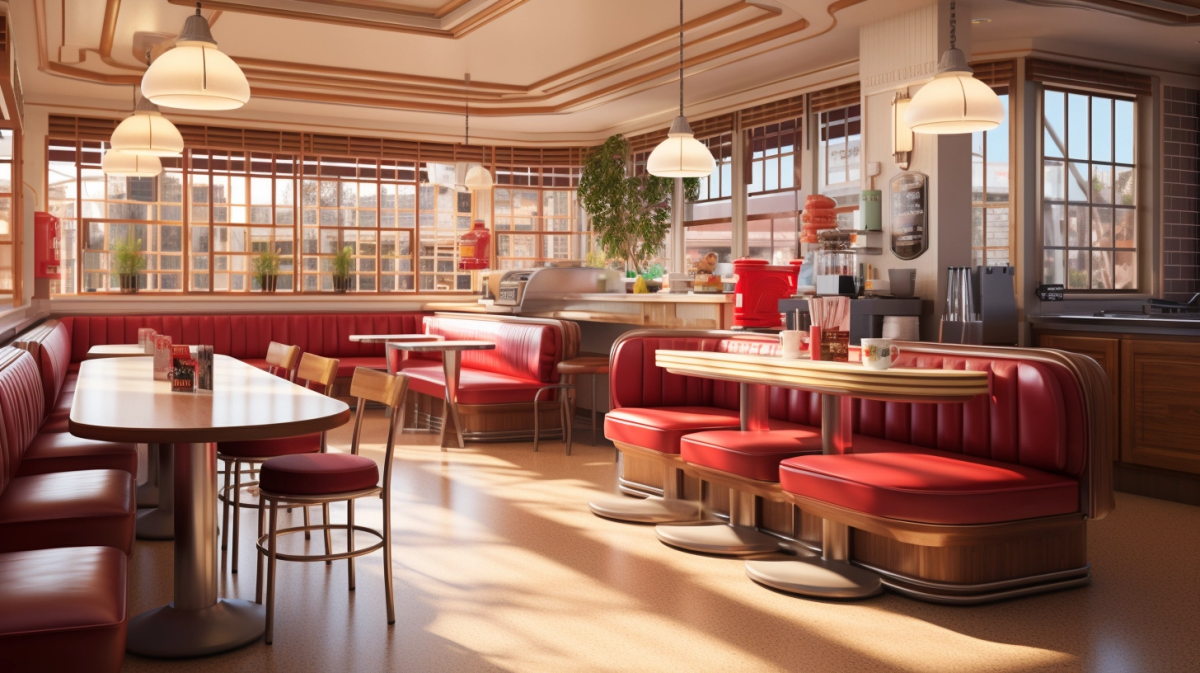A Closer Look at Franchise vs. Independent Restaurants

The Canadian restaurant industry has been thriving for decades. According to Mordor Intelligence, its value will reach $76.94 billion in 2023 and hit the $261 billion mark by 2029. It’s a perfect time to start a restaurant business and grab your piece of this massive financial pie.
However, which business model should you choose: independent or a franchise?
Let’s dive deep into franchise and independent restaurants to help you decide.
What Is an Independent Restaurant?

An independent restaurant is a local, standalone eatery. It could be your own business, but you could also run it with one or more partners like family members or close friends.
Owning an independent restaurant means building your brand from scratch and learning more about your target customers to meet their expectations. However, that means encountering challenges and risks you wouldn’t face with a franchise.
Let’s see what benefits you can enjoy as an independent restaurant owner and the drawbacks that might push you in the other direction.
Advantages and Disadvantages of Independent Restaurants

Here are the essential independent restaurant pros and cons to consider.
The pros of independent restaurants

Utter independence
You set your menu, operating hours, prices, decor, and atmosphere. You have complete creative control over everything in the business without anyone dictating your operations and the dining experience.
Keeping the profits
All the money you make stays in your pocket unless you have business partners. Still, no one prevents you from setting flexible pricing and offering discounts (e.g., happy hours) to generate more earnings in the long run.
Community engagement
You can join a local Chamber of Commerce to build credibility and attract more customers. Collaborating with fellow restaurant owners for mutual benefit is an incredible opportunity for recognition and success.
The cons of independent restaurants

High risk of failure
Independent restaurants have no standard policies and rules. First-time restaurateurs have a trial-and-error approach, and some mistakes can cost them the business. There’s also the problem of choosing an unfavourable location with low foot traffic and staying afloat during slow periods.
Financing and supply challenges
Banks view independent restaurants as high-risk investments, making it challenging to obtain startup funds. Other obstacles money-wise include more expensive supplies because you don’t have the purchasing power of franchise restaurants.
Difficulty standing out
Cutting through the noise of competition in the competitive restaurant industry can be challenging, primarily if you pick a location near franchise restaurants or other eateries. Building a unique brand that drives customers to your door might seem like a Sisyphean task.
These disadvantages don’t mean you can’t be a successful independent owner. However, building your reputation and generating revenue will take more time and effort.
What Is a Franchise Restaurant?

A franchise restaurant is an eatery an individual investor (franchisee) operates using the franchise’s (parent company’s) business model, name, branding, and trademark. The franchisor grants the franchisee the right to use those for a royalty fee.
Franchise restaurants have a defined food menu, operating hours, policies, strategies, and other operations. Owning one means getting ongoing support in multiple areas, including staff training, marketing, advertising, and obtaining supplies.
Are franchise and chain restaurants the same?

Franchise and chain restaurants aren’t the same. A franchisee owns a franchise restaurant and is responsible for daily operations, ensuring they follow the franchisor’s guidelines and pay the royalties.
On the other hand, a restaurant chain owns and runs all its locations. It doesn’t bring third parties into the picture.
However, some brands blur the lines between chain and franchise models. For instance, fast food chains like McDonald’s and Restaurant Brands International have corporate-owned and franchise-owned restaurants.
Franchising Advantages and Disadvantages

Here are the benefits and drawbacks of franchise restaurants that set them apart from independent restaurants.
The pros of franchise restaurants

Brand recognition
Franchises have well-known names and a solid reputation. Becoming part of such a brand means instantly gaining a loyal customer base and enjoying the perks of an established location.
Ongoing support
Your franchisor will provide staff training and guidelines for marketing, advertising, supplying, and other operations.
Fewer risks
You embrace a tried-and-tested concept, reducing the risk of failure. That’s a massive benefit since you don’t make independent, risky decisions or engage in a guessing game.
The cons of franchise restaurants

No creative control
Franchises have predetermined operations, offering identical experiences across locations. Franchisees don’t have a say regarding the menu, branding, renovations, inventory, or anything else. They also must buy what the parent company demands even if they can get a better deal (e.g., lower-priced materials).
Sharing profits
You don’t keep all your earnings as a franchise restaurant owner. Instead, you must pay a weekly or monthly royalty fee (typically 5–7% of your revenue) for operating under the franchise’s name.
Significant initial investment
Becoming a franchise restaurant owner can be expensive. Besides the royalties, you must pay the initial franchise fee, which may not include staff training. You’ll also need to cover ongoing marketing and advertising costs, future renovations, and other investments like R&D.
The disadvantages of owning a franchise might outweigh the benefits at first glance. However, giving up independence to embrace proven strategies is a surefire way to success. It can also be your stepping stone, helping you gain the experience and revenue to start your restaurant chain.
A Detailed Comparison of Independent and Franchise Restaurants

Let’s explore the crucial differences between franchise and independent restaurants.
Initial investment and ROI

Franchise restaurants may provide the advantage of operating under a recognizable brand, but you need significant money to start.
Besides the initial investment (between hundreds of thousands and millions of dollars), you must pay the franchise fee(the average of $23,000 in Canada).
Then, there are royalties, marketing and advertising fees, and additional expenses like R&D, supplies, employee training, an equity investment (typically $160,000 in Canada), and insurance.
Independent owners don’t have to worry about those fees. They only need capital to start and market the business (around $300,000).
However, Canada offers many small business loans and government grants. They also pocket all the profits and can attract customers by partnering with an online delivery service like Uber Eats.
Location

According to the Restaurant Franchise Canada Directory, Canada boasts 1,300+ brands and 76,000+ franchise locations.
Franchisees can choose an established location in any city or town, knowing it will attract high foot traffic. The parent company can also help them pick a favourable one.
That’s a significant advantage over independent ownership since the franchise has the necessary market knowledge and properties in high-traffic areas.
Workforce, supplies, and equipment

Independent restaurant owners must obtain the necessary equipment, supplies, and manpower. Franchise restaurants can enjoy the franchisor’s support, including recruitment services and access to trusted vendors.
Besides getting the necessary support to operate, you can enjoy lower prices on supplies and raw materials since franchisors order them in bulk and get discounts. That means you’ll spend less money than you would if you worked independently.
Licensing, branding, marketing, and the menu

Independent restaurant owners must acquire licences like food permits, build a restaurant brand from scratch, develop marketing campaigns (among others), and create your own menu. They can have a chef and serve unique specialties.
On the other hand, a franchise has a predefined menu and provides licensing, branding, and marketing support. You’ll have a guiding hand and systems in place from day one, giving you time to focus on delivering exceptional experiences to all customers.
Which Restaurant Concept Will You Choose?
Running a successful independent eatery requires significant effort, primarily for first-time restaurateurs trying to stand out in this competitive industry.
However, independent restaurants don’t pay a royalty fee (and other franchise-related costs) and keep their profits.
Still, franchisor assistance, operating under a recognizable brand in a vast chain, and tried-and-tested strategies make franchise restaurants appealing.
A business advisor can help you decide. Consult one to weigh your options, pick a model suitable for your needs, and embark on a road to success.
FAQ
What is the difference between an independent restaurant and a franchise?
Independent restaurateurs have full control over their business. Their franchise counterparts get a predefined menu and regulations to follow to ensure brand consistency.
Which restaurant franchise is the most profitable in Canada?
Tim Horton is the most profitable restaurant chain in Canada, with an average revenue of $1.7 million and 4,000+ restaurants nationwide. Others include McDonald’s, Boston Pizza, Montana’s, Pizza Pizza, and Mr. Sub.
How much does a franchise cost in Canada?
The average initial fee is $23,000, while an equity investment hovers around $160,000. However, startup costs can reach $1 million, primarily for well-known restaurants in high-traffic areas.
What are the disadvantages of an independent restaurant?
The most significant disadvantages of opening an independent restaurant include difficulty obtaining the necessary financing, finding a suitable location, getting supplies, and standing out from the competition.
Resources
https://www.mordorintelligence.com/industry-reports/canada-foodservice-market
https://canadianentrepreneurtraining.com/costs-of-opening-a-franchise
https://www.ownr.co/blog/restohub-restaurant-startup-costs







